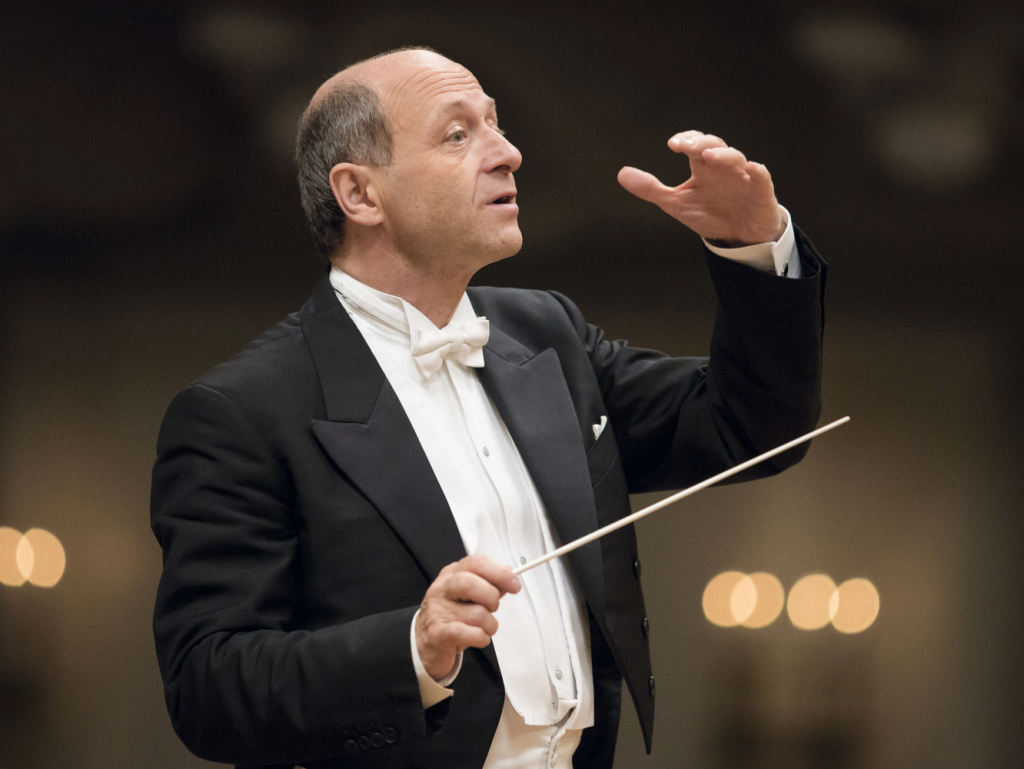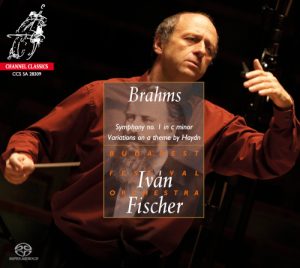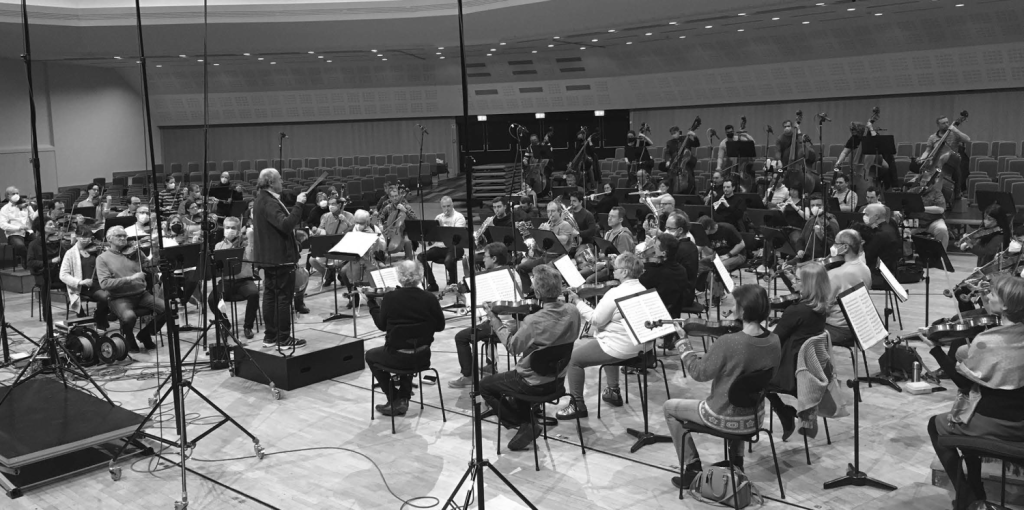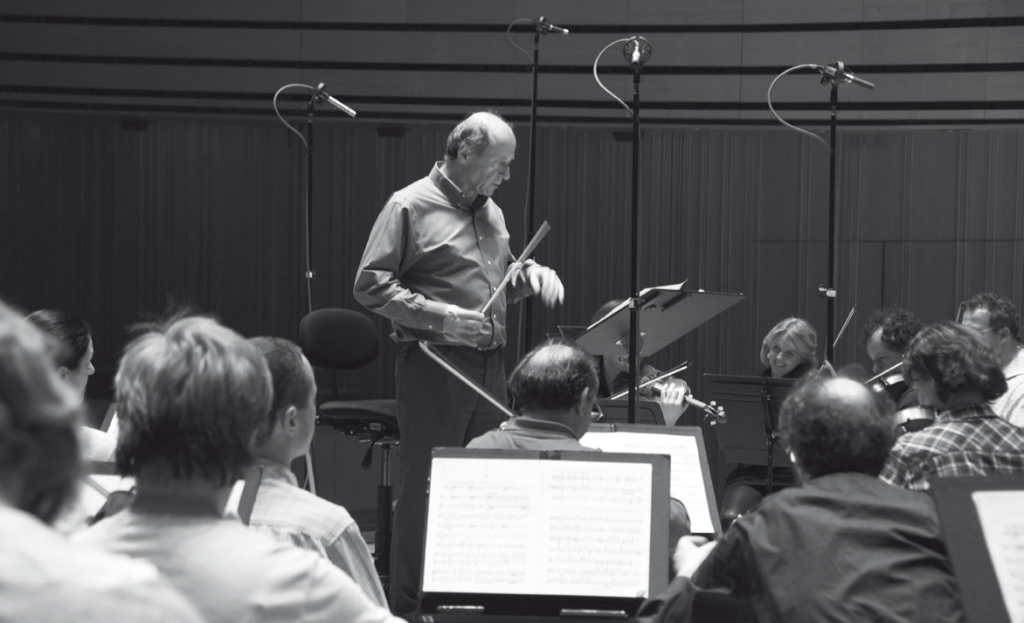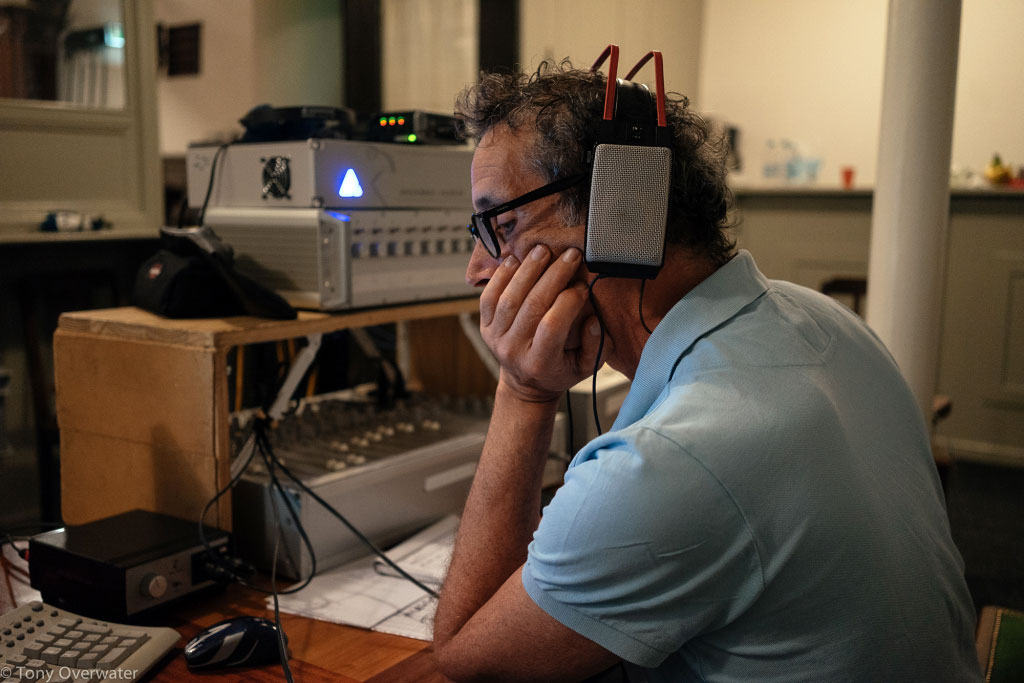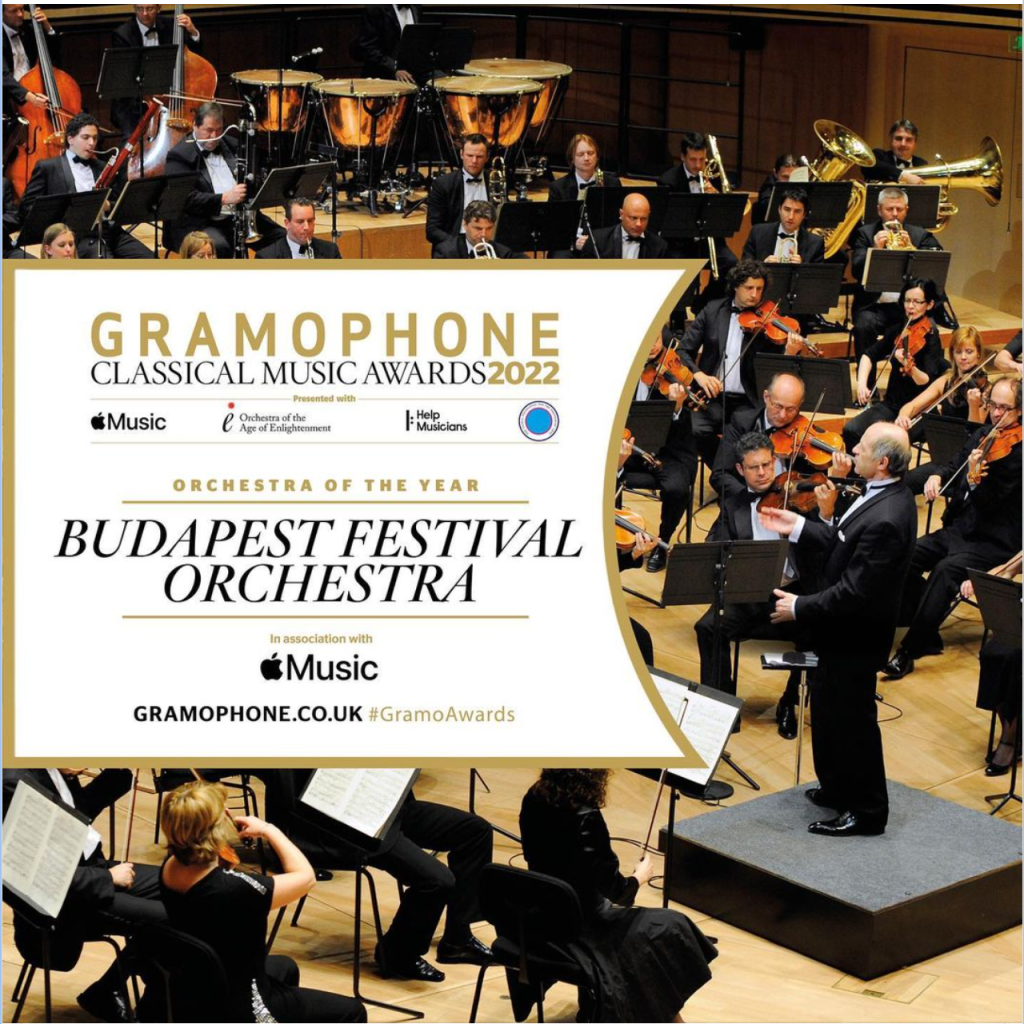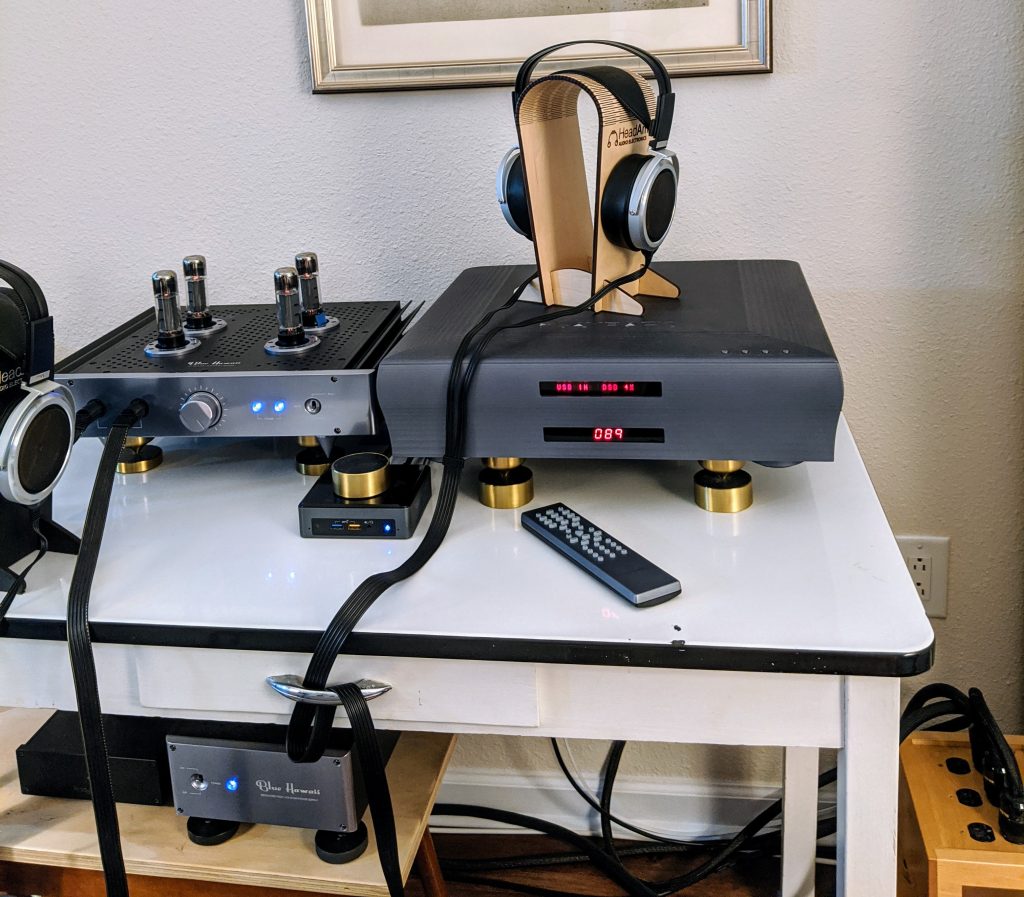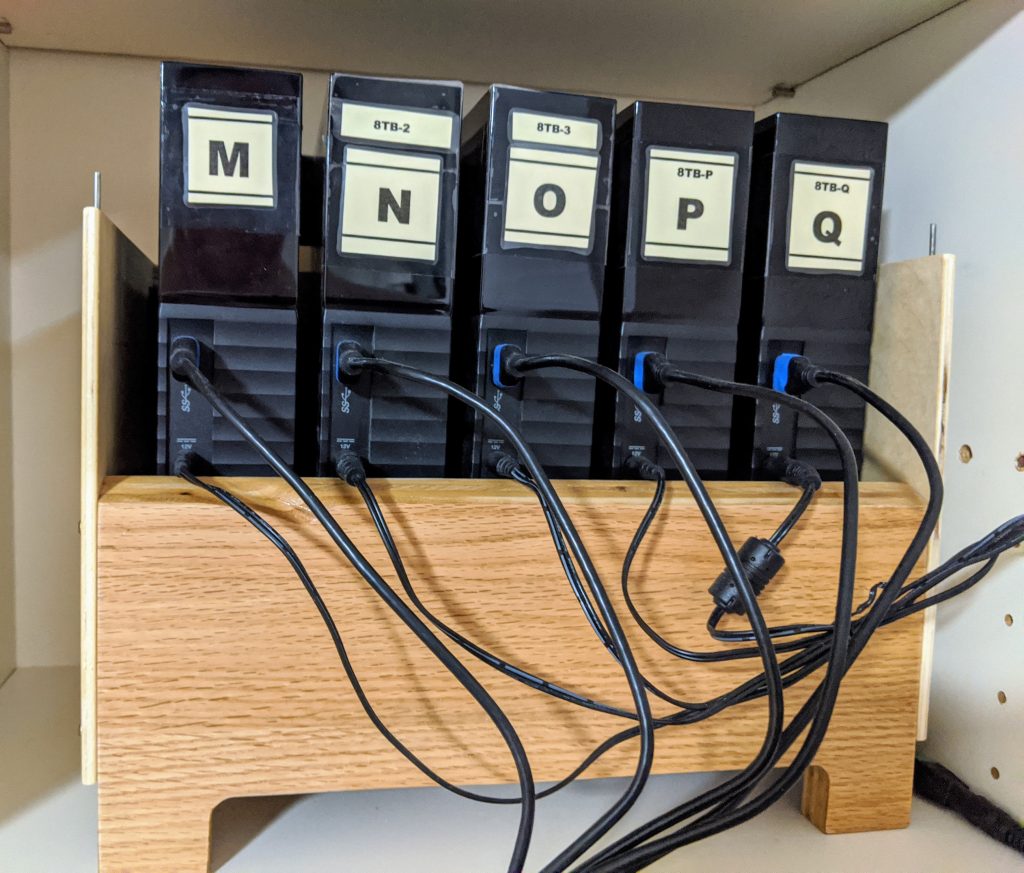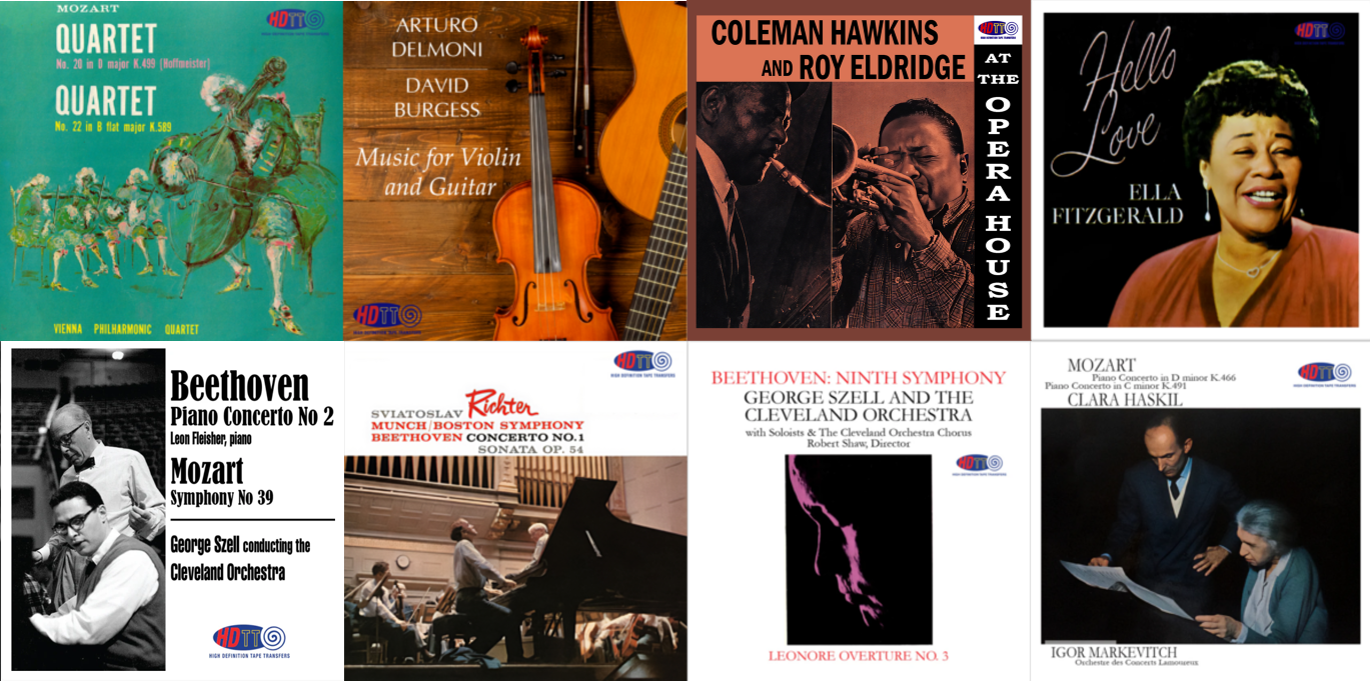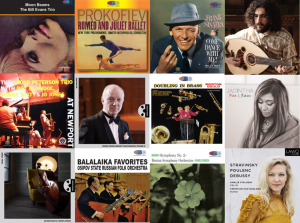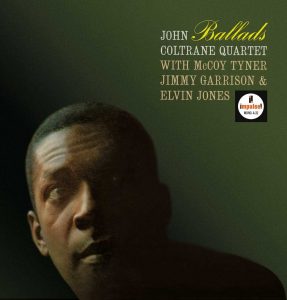How best to present several of the outstanding orchestral masterpieces found in the Channel Classics catalog? My choice is to start with selections from the works of the great conductor, Iván Fischer, leading the Budapest Festival Orchestra. These are world class performances filled with deep intelligence and love for the music. Combined with the superb recording quality provided by Channel Classics' producer and chief recording engineer, Jared Sacks, one has truly world class performances in world class sonics. Overall, these are among the best sounding orchestral recordings in my music library.
- Brahms Symphony No. 3, Serenade No. 2 - Iván Fischer, Budapest Festival Orchestra
- Brahms Symphony No. 1, Variations on a Theme by Haydn - Iván Fischer, Budapest Festival Orchestra
- Bruckner Symphony No. 9 - Iván Fischer, Budapest Festival Orchestra
- Mahler Symphony No. 2 "Resurrection" - Iván Fischer, Budapest Festival Orchestra
- Mahler Symphony No. 7 - Iván Fischer, Budapest Festival Orchestra
- Mahler: Das Lied von der Erde - Iván Fischer, Budapest Festival Orch (previously reviewed)
- Beethoven Symphonies Nos. 1 & 5 - Iván Fischer, Budapest Festival Orchestra
- Beethoven Symphony No. 7 - Iván Fischer, Budapest Festival Orchestra
- Budapest Festival Orchestra named Gramophone Orchestra of the Year, 2022
You will note that I have included Fischer's performance of Mahler's Das Lied von der Erde previously reviewed (HERE). I do so because it definitely belongs among any list of outstanding orchestral recordings from the partnership of Iván Fischer and Jared Sacks. It is simply remarkable.
Brahms Symphony No. 3, Serenade No. 2, Iván Fischer, Budapest Festival Orchestra. Channel Classics 2021 (DSD256) HERE
In this recording, Iván Fischer concludes his cycle of the Brahms symphonies begun in 2009 with the First Symphony discussed below. He now concludes with what is perhaps the trickiest to capture: the Third. It has been worth the wait. This is a Third "to savor and repeat," as Gramophone says.
More importantly, Ann comes running in just this morning saying:
"I've just listened to the most marvelous recording of Brahms' Third Symphony! Iván Fischer's interpretation is simply perfect. He lays everything out for us to follow—it simply flows. The entire symphony goes by in what seems like just a few minutes. And the sound quality! Oh, the sound quality!! It is so clear, so detailed, so perfectly natural sounding. I can follow every bit of the musical themes moving from section to section, interweaving and being passed from one instrument to another. The bassoons! How does Jared Sacks make such magic?!?"
Yes, I think she liked it.
Some reviewers criticize this performance as overly cool and controlled. They argue that it lacks the power and fire that is the other side of Brahms. And to some extent their criticism seems on target. But, there is also great value to Fischer's approach. Consider it "a technician's Brahms" if you will, but I for one will argue that this very restraint on Fischer's part opens deeper meaning to the work. It reveals and explores Brahms' introspective side and the considerable craftsmanship that goes into his works. This is particularly important with this, his most complex of creations.
As Jeremy Lee notes in his review (HERE), "Complexity—and keeping the flow going despite the complexity—are Fischer's stock-in-trade, and his Third is a perfect example." While he goes on to criticize this performance for this very characteristic, I celebrate it. Fischer is here the educator, the elucidator. This is part and parcel with why I so much enjoy his performances.
Count me a contrarian, perhaps, but I hold this performance in very high regard. It has much to offer. No, it does not sound like every other hell-bent-for-leather performance in the catalog. I am beyond grateful for that. This is a thinking person's Third Symphony. Fischer challenges us to go between the lines, to dig deeper beneath the surface for the meaning the gives this symphony such a great foundation. That slight pause at the end of a phrase, the deliberate slowing down of a line... These are the subtle re- imaginings that Fischer delivers to us to give a new perspective on this well known work. He is challenging us, and inviting us at the same time, to listen with new ears to this symphony.
I sum, I'd trust Ann about his recording before the critics.
The recording is yet another triumph by Engineer/Producer Jared Sacks, but it almost didn't happen. In a miracle of timing, Jared writes, "Due to a sudden increase of COVID-19 cases, Hungary closed its borders on September 1st, 2020. We had just arrived one day earlier from the Netherlands, having crossed the German, Austrian and Hungarian borders with my van full of recording equipment. Despite the restrictions, the Müpa Budapest concert hall remained accessible. The orchestra members all tested negative, and the recording could be completed...If the project would have been scheduled to begin a few days later, well, this recording would not be here."
And thus we are so fortunate to have this recording!
...
Brahms Symphony No. 1, Variations on a Theme by Haydn, Iván Fischer, Budapest Festival Orchestra. Channel Classics 2009 (DSD64) HERE
Throughout this recording, Iván Fischer gives us a performance that is positively luminous. In the symphony, he brings clarity to Brahms' notoriously dense orchestration, while delivering a richness of colors that seems limitless. The detail provided by Fischer and his BFO players is immense but never fussy, the pacing and dynamics thrilling but never aggressive. The opening is powerful, but not monumental in the way of Klemperer. He maintains suppleness. And throughout the work he is able to hold the long beautiful lines without breaking, even while varying the tempo—a very impressive accomplishment. Overall, this is a performance full of personality, presented at the highest technical and interpretive level.
The album opens with Fischer's own own arrangement of the Hungarian Dance No. 14. It’s rich, voluptuous, but also presents a very Hungarian sound. It stands here as a brief introduction to what is to come. The Times describes it as "a hesitating, melancholy delight." You will most enjoy it if you hear it right at the beginning and play the album straight through from here. As The Times opines, correctly in my opinion, "Fischer’s rather schoolmasters plan is to reveal the influences and stepping stones that led to the master work: Hungarian folk music, plus classical poise allied to contrapuntal strength. But the CD never feels like homework. These Budapest players have Hungarian folk music in their blood, and their national inflections of phrasing, tempo and string fingering make the symphony quiver with new life."
It is the range of the Haydn Variations that then set the stage for the Symphony. Just as might be programmed for the concert hall. Fischer approaches them as warm-sounding dances, providing completely clear and contrasting voices throughout. But Fischer imbues them with a grace and lightness of touch we don’t often hear in them.
This performance may date from 2009, but the clear sonics achieved in Jared Sacks' pure DSD recording make the recording sound as fresh and alive as if it had been made this past year. Even more significant is the manner and clarity with which Jared captures the orchestra as a living, breathing whole, filled with inner detail and subtle dynamic shadings. Just an excellent recording.
Bruckner Symphony No. 9, Iván Fischer, Budapest Festival Orchestra. Channel Classics 2022 (DSD256) HERE
In the BBC Music Magazine (here), Terry Fisher writes, "Fate didn’t look kindly on Bruckner. Bruckner's symphonies were cruelly attacked, or subjected to disastrous cuts by his well-meaning students... His life seemed beset by ridicule and disappointment."
And yet Bruckner created some of the most powerfully inspiring music we have, filled with wonder, filled with rejoice in the world.
For no less than seven years, from 1889 to 1896, Bruckner tenaciously worked on his Ninth. At some point during his efforts, he implored God to give him strength to complete it: "If He takes the pen from my hand, it is His responsibility." But on October 11, 1896, he returned home from a morning walk only to quietly die, leaving behind the most extensive unfinished symphony since Franz Schubert.
In this recording of what is, perhaps, Bruckner's most powerful and visionary symphony, Iván Fischer and the Budapest Festival Orchestra are simply phenomenal. A concern voiced by some critics is that the performance would be too fast, just judged by the movement timings. And, yes, he is certainly on the faster side.
But Fischer and his musicians pull it off supremely well.
Fischer's approach is most rewarding in the first movement where the music simply flows with an irresistible force. It is majestic, not maudlin. Fischer's decision to speed things up a bit clearly pays off. His musicians are up for it. They play with excellent articulation and precision, never getting left behind. The clarity with which this music is crafted is compelling, totally immersive, immensely satisfying. The Scherzo movement that follows maintains this driving force, punctuated by delicate lyrical segments where Fischer slows to savor the detail, then pounds back once again with driving hammer blows as Bruckner pushes hard. One is left nearly wrung out by the emotional power evoked.
The Adagio is Bruckner’s heartrending farewell to the world and to life. And it is here that one might expect most at risk from Fischer's decision to turn up the tempo on this performance. But it flows smoothly, gently, rising gracefully to great power, then declining in reflection, only to rise once again.
Fischer creates something rare in his performance of this symphony. He holds onto our collars and compels us to confront the music. And while he does turn softly melodic with the delicate phrases (over which he lingers most suitably), he still finds us to pull us along with him as he confronts the wonder with which Bruckner imbues this music.
Overall, Fischer creates greater coherence in this music than I hear in most other performances. His is rare combination of power, beauty, grace, deep intelligence, wonder, and, indeed, awe. How fitting for Bruckner's masterpiece.
The sound quality of this recording is astonishing in its own right. It is of such excellence as to make one weep for joy.
I have come to expect astounding recordings from Jared Sacks, here working in collaboration with yet another of my favorite recording engineers, Tom Peeters. But what Jared and Tom have wrought is simply beyond excellence. It is a demonstrative tour de force of orchestral recording technique. There is a solidity of image, a transparency of sound, a verisimilitude of the presence of the musicians, that astonishes. If I could take but a single recording to illustrate what is possible at the farthest edge of the state of the art in modern recording capabilities, this is the album I would present.
Mahler Symphony No. 2 "Resurrection", Iván Fischer, Budapest Festival Orchestra. Channel Classics 2006 (DSD64) HERE
There are many great Mahler Second Symphonies in the catalog. But this recording by Iván Fischer and the Budapest Festival Orchestra continues to return to my listening lineup time and time again. There is something very right about Fischer's interpretation—the great arcs of tension with which he draws this music, the visceral impact of various passages, the lyrical interludes, all of a continuity in the constant flow of the music. It is always a real pleasure to hear.
The huge tympani and orchestral gong passages in the first movement can be just startling. Yet they are presented as an organic whole with the rest of the music, not delivered just for audience impact or audiophile titillation. (Though there is that, to be sure. Dr. David did not include the opening five minutes or so of this passage in Positive Feedback's demonstration sampler of DSD sound quality for no reason, NDSD006 Positive Feedback DSD Sampler.)
In any work with a soloist who must carry a movement, as occurs in the fourth movement of the Resurrection, the quality of that soloist is critically important. And I am delighted to confirm that mezzo-soprano Birgit Remmert makes lovely work of "Urlicht." And as a decided further benefit, the choir's contribution in the final movement is near-perfect as well.
Gramophone concludes best with the comment: "The crowning glory is, as it should be, the finale—and it is here that Fischer, his performers and his engineers, really excel. The 'special effects' of Mahler’s elaborate Judgement Day fresco have rarely been so magically realised. The offstage horns are so breathtakingly remote as to suggest the world of the living left far behind. Moments of quite extraordinary stasis precede the sounding of the Dies Irae and the hushed entry of the chorus. And come the peroration (resplendent with fabulous horns), Fischer knows that it is with that final crescendo of the chorus and only then that the heavens really pen. Impressive!!"
I will only add that, in my opinion, it is the contribution of Jared Sacks that finally and ultimately sets this recording to the top of my personal list of excellence. He delivers the full drama of the music in the sound quality he captures. His recording is transparent and transportive. Just supremely well done. And even though he did not have access to DSD256 when this recording was made in 2005, the sonic results he gives us are among the best yet available, and perhaps the best.
Playback caution: The macro dynamic range on this recording is huge. The soft sections may prompt you to turn the volume up. But keep in mind that the loud sections will be very loud indeed.
Mahler Symphony No. 7, Iván Fischer, Budapest Festival Orchestra. Channel Classics 2019 (DSD64) HERE
I am a huge fan of how Iván Fischer interprets Mahler. His shaping of the music, his presentation of the interweaving themes, all just sound so right to me. There is never an over-indulgence. Yet there is massive beauty of line, delicate phrasing, and meaningful dynamic shadings. Fischer always seems to me to meet Mahler on Mahler's own terms. Not Iván Fischer trying to out-do the composer.
Fischer's Seventh is all Mahler, in both its power and its surprises.
Of this symphony, Iván Fischer says, "Mahler returns here to a perfect balance. He ended the 6th Symphony in a tragic minor key. Here he offers us the full journey from darkness to light. And what a journey it is! Please note the most magnificent scherzo framed between the two unique night music episodes! I love this symphony."
Everything within this performance of the Seventh is richly textured, with generous earthy tones and a never ending palette of color. As The Times says, "This is an an orchestra and conductor who seem constitutionally unable to generate a boring sound." It is magnificently played.
Fischer and his orchestra leave no stops unpulled to provide the full range of sound effects and instrumental colors that Mahler envisaged in the orchestration of this symphony. From the first haunting solo of the tenor horn, from the piccolo to the contrabassoon, from the divided solo violins to the tuba, from the guitar and the mandolin to the glockenspiel, this is a feast for the ears. A musical richness to nourish both heart and mind.
Yet again, the magnificent transparency and detail from recording engineer Jared Sacks makes this a recording that surpasses all others in my collection. This recording is a triumph of the continuing symbiotic relationship developed among conductor, orchestra and recording engineer.
Iván Fischer in recording session
Beethoven Symphonies Nos. 1 & 5, Iván Fischer, Budapest Festival Orchestra. Channel Classics 2019 (DSD64) HERE
Beethoven Symphony No. 7, Iván Fischer, Budapest Festival Orchestra. Channel Classics 2014 (DSD64) HERE
Iván Fischer's Beethoven is stylishly played, with careful attention to balance, elaboration of detail, and a certain bit of elegance. Where a bit of boisterousness is required, Fischer and his Hungarians are perhaps more understated than ribald, but his Beethoven is never staid or boring. In fact, a keynote to Fischer's Beethoven seems to be "expect the unexpected" (as Michael Greenhalgh has said). I feel I could say any of this, quite accurately, about any of his Beethoven performances—these are universal characteristics. And most welcome!
These performances are full orchestra, modern instrument, performances—big band, if you will—not period performances. But they are not heavy, nor do they fall under the weight of some notion of needed monumentality. No, these all have a springy sinewy strength to them, with great textural clarity.
I offer to you these two albums as examples of what Fischer delivers in all of his Beethoven recordings: wonderfully lively, elegant, intelligent and fresh interpretations.
The Fifth is a transparent and bracing account. The music has both tautness and swagger. And the playing from the horns sets the world aright. Fischer says of the Fifth, "With the fifth symphony, Beethoven has created a new art form. He takes us from hell to paradise, from tragedy to jubilation. The mature Beethoven is a revolutionary agitator, who wants to change the world and introduce us to an all-embracing euphoria...The romantic symphony, of which the 5th is the first and the greatest masterpiece, is a future vision of happiness, fraternity, and complete freedom. We need this message today, more than ever."
The First is, rather by contrast, all delicate lightness, air and lyrical rightness—simply a delightful romp in the classical period.
Fischer's Seventh is certainly among the best performances you will find. He catches the tempi just right: the introduction isn’t too slow, the second movement Allegretto is beautifully paced and balanced, and the finale is athletic with very lively action. And, miracle of miracles, he manages never to sound mechanical through the third movement—often the death nell of lesser performances.
The Times Online gets it exactly right in their comments about this Seventh Symphony: "A spring-heeled conductor such as Iván Fischer was born for Beethoven’s Seventh Symphony, and this account with his Budapest Festival Orchestra is a bubbling delight. Smile at his teasing with the introduction’s transition; bask in the allegretto’s light grace; dance and leap with the tumbling finale. Fischer whips up tremendous excitement, but still gives us playing of shining finesse."
To top it all off, Fischer manages to ground all three symphonies solidly in the real world. It just doesn't get much better with Beethoven.
As we have come to expect from Jared Sack’s recordings, the sound quality in both albums is simply gorgeous. Open, transparent, filled with clarity, and capturing the wonderful acoustics of the recording hall in a way that allows us to hear real instruments playing in a real, natural acoustic space.
Jared Sacks
All photos above courtesy of Channel Classics
Congratulations to Iván Fischer and the Budapest Festival Orchestra on being named Gramophone’s Orchestra of the Year for 2022!




